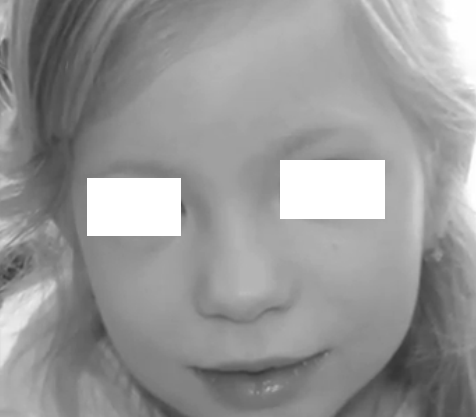Prader-Willi syndrome is an uncommon condition that causes several forms of mental, physical and behavioral disorders and which is present at birth. A key aspect of the syndrome is the perennial sense of hunger that generally commences after the age of one year.
Individuals affected by Prader-Willi syndrome have a constant urge to keep on eating which causes them to become overweight. Most of the complications associated with the syndrome result from obesity.
Symptoms of Prader-Willi Syndrome
The symptoms of Prader-Willi syndrome generally arise in two stages. The signs that may occur in the first year of life are as follows:
- The affected infants have unique facial features such as tapered head at the temples, almond-shaped eyes, a thin upper lip and a lowered mouth
- The babies with Prader-Willi syndrome have poor muscle tone, which make them floppy to touch when held in the arms
- The poor muscle tone decrease the ability of the infants to suck, which in turns makes for feeding difficulties. This can result in poor nutrition, failure to gain weight and thrive
- The infant may be unusually unresponsive to stimulation, have a frail cry, become easily fatigued and wake up with difficulty
- The eyes of the infant affected by Prader-Willi syndrome may not experience coordinated movements and may wander to the sides.
The following symptoms may appear from ages 1 to 4 years. These signs may be prevalent for the rest of one’s life and hence require effective treatment and management. They include:
- The affected child is usually always hungry and craves food. He/she may consume large amounts of food at regular intervals causing obesity.
- Children with Prader-Willi syndrome may not achieve their full potential for growth. Along with poor muscle mass, they also have short feet and hands as well as a shorter stature as compared to family members
- The sexual organs, i.e. the testes in men and the ovaries in women may be underdeveloped, resulting in little or absent production of sex hormones. Women may start menstruating in their 30s or not at all. Men will have lesser body or facial hair and no deep voice. Both sexes may be infertile.
- Children affected by Prader-Willi syndrome take longer time to reach developmental milestones, like sitting up, walking, etc.
- There may be some cognitive impairment in the affected children which may result in learning disabilities
- The child with Prader-Willi syndrome may have communication problems and speech is generally delayed till the age of 2 years
- The child may be prone to various types of sleep disorders and sleeping difficulties, including sleep apnea
- The affected child may develop behavioral problems and may be prone to temper tantrums, aggressive behaviors as well as certain disorders like obsessive compulsive disorder
- A section of the children affected by Prader-Willi syndrome may develop scoliosis or abnormal curvature of the spine
Other rare symptoms exhibited by people with Prader-Willi syndrome include a lighter shade of the skin as compared to family members; myopia or nearsightedness and extreme tolerance for pain.
Causes of Prader-Willi Syndrome
Prader-Willi syndrome is a disorder that is caused by a genetic error in one or more genes. The genes responsible for the condition are not known, but it is believed that it may be present in a certain area of the chromosome 15
All the genes, other than the sex genes, come in pairs and each copy of the pair is inherited from the father and the mother. In almost all gene types, when one copy of a particular gene (paternal gene) is expressed, then the maternal gene also gets expressed. In rare cases, a copy of the gene may act alone, i.e. just the maternal side or paternal side of the gene gets expressed.
The Prader-Willi syndrome develops due to non-expression of certain paternal genes that should be expressed. This may happen due to the following reasons:
- There is inheritance of two copies of the chromosome 15 gene from the maternal side and none from the paternal side
- The father’s genes on chromosome 15 are not present
- The father’s gene on chromosome 15 has some defect or error
The genetic abnormality that is associated with Prader-Willi syndrome affects the function of the hypothalamus. It is that region of the brain that is associated with regulation of thirst and hunger as well as for the production and control of hormones that are essential for sexual growth and development.
The abnormal functioning of the hypothalamus results in all the characteristic symptoms of Prader-Willi syndrome
Prader-Willi Syndrome treatment
The treatment of Prader-Willi syndrome is focused at alleviating and managing the symptoms of the condition as well treating the effects of the disorder. It includes the following:
- Growth hormone treatment to increase the muscles tone, the metabolism and the growth and development of the body
- The decreased muscle tone can cause feeding problems. Hence special food is prescribed for weight gain in the affected child
- Hormone replacement therapy may be necessary to compensate for the diminished levels of sex hormones in Prader-Willi syndrome patients
- Several therapies such as occupational therapy, speech therapy, behavioral therapy, etc. is recommended to improve the overall development of the child
- As the affected child grows up, the weight and excessive hunger can be controlled by consulting a nutritionist for appropriate diet plans
- Obsessive compulsive disorder and other psychological disorders can be corrected with the aid of a psychologist and medications
Prader-Willi Syndrome pictures


Prader-Willi Syndrome – Life Expectancy
The life expectancy of patients with Prader-WIlli Syndrome has shown a marked improvement. It has been noted that premature aging sets in among the patients above the age of 50 with disorders like cardiovascular problems, orthopedic disorders, psychiatric issues, diabetes, skin-related problems and general functional decline. With proper medical attention, observation and care once the PWS person turns 40, the life span can be increased substantially.




